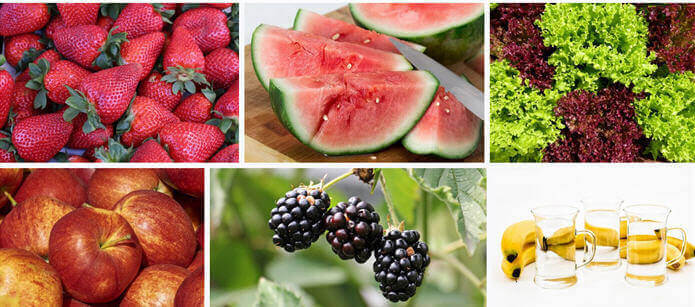What are the vitamins? Why do human body need vitamins? What are the effects and functions of vitamins in human body?
Vitamins are special substances that the body needs in minute amounts in order to work right, somewhat the way any machine needs a few drops of oil, or a gasoline motor depends on a tiny electric spark.

Vitamin A
is necessary to keep healthy the linings of the bronchial, intestinal, and urinary systems, and various parts of the eyes, including that which enables us to see in dim light. The body gets it plentifully from milk fat, egg yolk,green and yellow vegetables, vitamin drops. Probably the only people who receive too little are those on really bad diets or those who cannot absorb it because of serious intestinal disease. These people may be subject to bad colds because of the deficiency. There is no reason to believe, though, that the person on adecent diet will catch fewer colds by taking more and more vitamin A.
Vitamin B complex
Scientists used to think that there was just one vitamin B, which had several actions in the body. But when they studied “it,” it turned out to be at least ten different vitamins. However, these mostly occur in the same foods. Since the B vitamins are not yet all known or understood, it is more important for people to eat plenty of the natural foods they mostly occur in than to take them separately in pill form. The three known to be most important for human beings are called by their chemical names now: thiamin, riboflavin, niacin. Every tissue in the body needs these three vitamins.
Thiamin (Bı) occurs in fair amounts in whole grains, milk, eggs, liver, meat, and certain vegetables and fruits. It is destroyed by long cooking, especially when soda is used. People are apt to receive an insufficient supply of it when they eat a lot of refined starches and sugars. Lack of thiamin can cause poor appetite, slow growth, fatigue, stomach and intestinal troubles, neuritis. (However, there are many different causes of all these symptoms, and thıamin deficiency is not the ,most common one.)
Ribofiavin (also known as B, or G) occurs abundantly in liver, meat, milk, eggs, green vegetables, whole grains, yeast, so a reasonable diet should provide plenty. Deficiency causes cracks in the comers of the mouth and other lip, skin, mouth, and eye troubles.
Niacin (nieotinic acid) occurs abundantly in about the same foods as riboflavin (except milk). Deficiency canses mouth, intestinal, and skin troubles, which are part of the disease called pellagra.
Vitamin C (ascorbic acid)
occurs most abundantly in oranges, lemons, grapefruit, raw and properly canned tomatoes and tomato juice, raw cabbage. it occurs in fair amounts in several other fruits and vegetables, ineluding potatoes. It is included in many vitamin preparations. it is easily destrayed in cooking. It is necessary for the development of bones, teeth, blood vessels, and other tissues, and plays a part in the functioning of most of the cells in the body. Deficiency is commonest in babies living on cow’s milk without orange or tomato juice or vitamin C medicine, and shows itself in painful hemorrhages around the bones and in swollen, bleeding gums. This condition is called scurvy.
Vitamin D
is needed in large amounts for growth, particularly of the bones and teeth. It helps get calcium and phosphorus, which are in the food in the intestines, absorbed into the blood and deposited in the growing parts of the bones. That’s why it should be added to the diet of children, especially in the period of rapid growth in infancy. Ordinary foods contain only a small amount. The sun’s rays’ shining on the fat in people’s skins manufactures vitamin D right there, and that’s how they naturally get it when they live outdoors and wear few elothes. When they liye in colder climates, they cover up their bodies with clothes and live indoors. The sun’s rays in these regions are more slanting and are shut off by soot in the air and by window glass. Various fish-liver oils and synthetic preparations are then the best source of vitamin D. (Fish store it in their livers by eating minute plants that float on the surface of the ocean. Sunshine manufactures it in these plants) Vitamin D deficiency results in soft, bent bones, poor teeth, weak muscles and ligaments. This is called rickets.
Fully grown people probably receive enongh vitamin D from the small amounts in eggs, butter, fish, and from a little sunshine. But the child who is not getting lots of sunshine should take a special preparation of vitamin D, summer and winter, until he has reached his full height in adolescence. Mothers need extra vitamin D during pregnancy breast feeding.
***This article is for informational purposes only. It is not a doctor warning or recommendation.